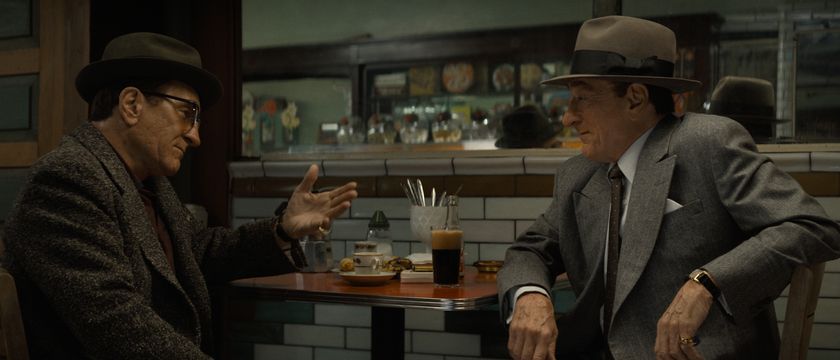The modern legacy of the Universal Classic Monsters is a strange thing to behold. This is a franchise that established iconic looks for a significant number of classic horror villains, and yet their representation in the 21st century has been relatively underwhelming, including two disappointing Mummy sequels (The Mummy Returns and The Mummy: Tomb of the Dragon Emperor), two origin stories that never took off (The Wolf Man and Dracula Untold), and two attempts at building action-centric series that turned out entirely awful (Van Helsing and The Mummy).
Pinpointing the exact reasons behind these unfortunate developments is challenging – but the ultimate positive spin on things is that all of these movies make Leigh Whannell’s excellent The Invisible Man feel like a damn revelation. It took a shockingly long time for Universal Pictures to make a great film based on one of their most classic properties, but now it’s here, and it feels primed to be a hit.
Written by Leigh Whannell, The Invisible Man is a fresh take on the titular character that takes certain inspirations from the original run of Universal movies, but very much has its own story to tell. Wasting no time building some serious tension, the film begins centering on Cecilia Kass (Elisabeth Moss) as she works to pull off a daring escape. She can no longer tolerate her emotionally and physically abusive relationship with her husband, Adrian Griffin (Oliver Jackson-Cohen), and so she makes a plan to sneak off in the middle of the night with help from her sister, Alice (Harriet Dyer).
Successfully getting away, Cecilia spends the next few weeks secretly living with her police officer friend James Lanier (Aldis Hodge) and his daughter, Sydney (Storm Reid), hoping that Adrian won’t find her. She is terrified to even step outside – but then Alice comes by with some major news: Adrian is dead, and he left a portion of his estate to his estranged wife.
While Cecilia is at first relieved to hear the news, she quickly comes to the understanding that her nightmare is far from over. Adrian was a genius scientist specializing in the world of optics, and previously threatened to surreptitiously stalk her without her ever knowing should she ever try to leave him. It’s a notion that Adrian’s brother/lawyer Tom (Michael Dorman) tries to dismiss as paranoia, but Cecilia becomes sure of her ex’s continued presence, and finds him slowly working to rip apart her life.
The Invisible Man has a fantastic, smart approach that is shocking and has something to say.
At the heart of what makes The Invisible Man work as well as it does is an ingenious approach to the specific terror that the monster can inspire, and the way in which that approach is applied to a very zeitgeist-heavy story. When you break it down, the horror that Adrian inflicts on Cecilia’s life is textbook gaslighting – manipulating her world in the aim of forcing her to question the nature of her own reality – and Leigh Whannell’s application of that idea is consistently chilling and spine-tingling.
In that aim, there is a fascinating approach towards perspective, as there isn’t a moment in The Invisible Man where you are ever led to question whether or not Cecilia might actually be seeing and experiencing things that aren’t happening. Instead, Whannell plants the audience firmly in the protagonist’s justifiably terrified mind, and it has the effect of the character’s fear being transplanted on to you, and it just makes the experience that much scarier and atmospheric.
The Invisible Man is wonderfully scary and clever.
There is a tightrope aspect to it, as the idea of an invisible villain requires a regular application of subtlety over flash, but it’s a balancing act that the film’s writer/director pulls off magnificently. You “ooh” as a knife falls from a counter in an empty kitchen and never hits the floor, a blast of icy breath appears from nowhere, and as mysterious imprints the shape of human feet appear on the floor. The writer/director clearly loves the fact that the audience is never entirely sure when Adrian is in the room, and he’s clearly consistently happy to let that paranoia build.
Simultaneously, though, when the movie decides to kick things up a notch, it does so brilliantly. Leigh Whannell, who created some incredible unique action sequences in his last movie, Upgrade, goes whole hog when it comes to the Invisible Man attack sequences, as he makes regular use of unbroken shots that fire the audience’s stress level through the roof. Furthermore, the visual effects are flawless.
Elisabeth Moss is at the top of her game in The Invisible Man.
The intelligent approach and crafty photography doesn’t mean anything unless the audience connects with the story’s protagonist, but in that realm Elisabeth Moss is an elegantly wielded weapon, and she delivers one of the best performances of her career in The Invisible Man. Cecilia is an incredibly strong woman who has spent years being told that she is weak, and it’s special to watch the actress take the character on a path to fully recapture what was taken from her… though she has to go through an serious emotional ringer on that journey. It’s intense to watch, as there are really only two or three moments maximum in the film where she just gets the opportunity to breath and collect herself, but also remarkable.
Rather than trying to create any kind of interconnected universe or large scale franchise, it seems that the new development strategy for the Universal Classic Monsters is the creation of individual standalone features that are both scary and work to exemplify what made the characters great in the first place. If they wind up all being as exceptional as Leigh Whannell’s The Invisible Man, we have many years of fantastic horror cinema ahead of us. Without trying to be funny (ok, a little funny), it’s a must-see.

Eric Eisenberg is the Assistant Managing Editor at CinemaBlend. After graduating Boston University and earning a bachelor’s degree in journalism, he took a part-time job as a staff writer for CinemaBlend, and after six months was offered the opportunity to move to Los Angeles and take on a newly created West Coast Editor position. Over a decade later, he's continuing to advance his interests and expertise. In addition to conducting filmmaker interviews and contributing to the news and feature content of the site, Eric also oversees the Movie Reviews section, writes the the weekend box office report (published Sundays), and is the site's resident Stephen King expert. He has two King-related columns.

'A Gift To Witness And Absorb': Dwayne Johnson Talks Teaming With Martin Scorsese On New Thriller, And It Sounds Like A Personal Win For Him

I Watched Three Ray Nicholson Movies In The Past Year. Why I Think He's One Of The Best Up-And-Comers In The Game

I Know It's A Hot Take, But I've Always Preferred The Predator Series To The Alien Series. Let Me Explain...










